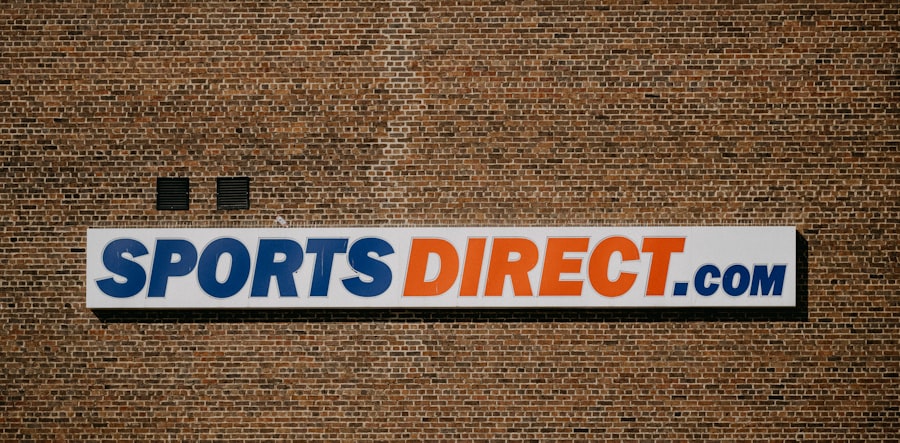Sport agent firms play a pivotal role in the professional sports landscape, acting as intermediaries between athletes and various stakeholders, including teams, sponsors, and media outlets. These firms are not merely transactional entities; they are strategic partners that help athletes navigate the complexities of their careers. The emergence of sport agent firms can be traced back to the mid-20th century, when the commercialization of sports began to take shape.
As athletes started to gain significant financial rewards for their talents, the need for professional representation became increasingly apparent. Today, sport agent firms have evolved into sophisticated organizations that offer a wide range of services tailored to the unique needs of athletes. The significance of sport agent firms extends beyond mere contract negotiations.
They are instrumental in shaping an athlete’s brand, managing public relations, and ensuring compliance with league regulations. In an era where social media and personal branding are paramount, the role of these firms has expanded to include marketing strategies that enhance an athlete’s visibility and marketability. As the sports industry continues to grow and evolve, the influence of sport agent firms is likely to become even more pronounced, making them essential players in the ecosystem of professional athletics.
Key Takeaways
- Sport agent firms play a crucial role in managing athletes’ careers and negotiating contracts.
- Leading firms represent top athletes across various sports, influencing industry standards.
- These firms have evolved from simple contract negotiators to comprehensive career managers.
- Services include contract negotiation, marketing, endorsement deals, and legal support.
- Challenges include regulatory changes, competition, and maintaining athlete trust in a dynamic market.
The Role of Sport Agent Firms in the Industry
Sport agent firms serve as crucial advocates for athletes, representing their interests in various capacities. One of their primary functions is negotiating contracts with teams and sponsors, ensuring that athletes receive fair compensation for their skills and contributions. This process involves not only securing lucrative deals but also understanding the nuances of collective bargaining agreements and salary caps that govern professional sports leagues.
Agents must possess a deep understanding of the market dynamics and leverage their relationships with team executives to achieve favorable outcomes for their clients. Beyond contract negotiations, sport agent firms also play a vital role in career management. They provide guidance on career decisions, helping athletes choose the right teams or endorsements that align with their long-term goals.
This includes advising on potential trades, free agency opportunities, and even retirement planning. The relationship between an athlete and their agent is often built on trust and mutual respect, as agents must prioritize their clients’ best interests while navigating the competitive landscape of professional sports.
Top Sport Agent Firms and Their Clients

Several sport agent firms have established themselves as leaders in the industry, representing some of the most recognizable names in sports. One such firm is Creative Artists Agency (CAA), which has a diverse roster of clients across various sports, including basketball superstar LeBron James and NFL quarterback Patrick Mahomes. CAA’s success can be attributed to its comprehensive approach to athlete representation, combining contract negotiation with marketing and branding strategies that elevate its clients’ profiles.
Another prominent player in the field is Wasserman Media Group, known for its extensive network and innovative marketing solutions. Wasserman represents high-profile athletes such as NBA star Kevin Durant and tennis champion Maria Sharapova. The firm’s ability to adapt to changing market conditions and leverage emerging trends has positioned it as a formidable force in athlete representation.
These top firms not only negotiate contracts but also create opportunities for their clients through strategic partnerships and endorsements, further enhancing their marketability.
The Evolution of Sport Agent Firms
| Year | Number of Sport Agent Firms | Average Number of Clients per Firm | Major Sports Represented | Notable Trends |
|---|---|---|---|---|
| 1980 | 50 | 10 | Baseball, Football | Emergence of formal sport agent roles |
| 1990 | 120 | 25 | Baseball, Football, Basketball | Growth due to increased athlete salaries |
| 2000 | 250 | 40 | Baseball, Football, Basketball, Soccer | Expansion into international markets |
| 2010 | 400 | 60 | Football, Basketball, Soccer, Hockey | Rise of multimedia and branding deals |
| 2020 | 600 | 80 | Football, Basketball, Soccer, Esports | Inclusion of esports and digital marketing |
| 2024 | 750 | 95 | Football, Basketball, Soccer, Esports, MMA | Focus on athlete mental health and analytics |
The evolution of sport agent firms has been marked by significant changes in the sports industry itself. In the early days, agents were often viewed with skepticism, as many athletes were hesitant to trust outsiders with their careers. However, as the financial stakes in professional sports grew, so did the demand for professional representation.
The 1970s and 1980s saw a surge in the number of agents entering the field, leading to increased competition and a greater emphasis on professionalism within the industry. The advent of technology has also played a crucial role in shaping the landscape of sport agent firms. With the rise of digital communication and social media, agents now have access to a wealth of information that can inform their strategies.
They can analyze player performance data, monitor market trends, and engage with fans directly through social media platforms. This technological shift has enabled agents to provide more informed advice to their clients and has transformed how they market athletes to potential sponsors.
Services Offered by Sport Agent Firms
Sport agent firms offer a comprehensive suite of services designed to support athletes throughout their careers. Contract negotiation remains at the core of what agents do, but their offerings extend far beyond this fundamental aspect. Many firms provide financial management services, helping athletes navigate investments, taxes, and retirement planning.
This holistic approach ensures that athletes are not only maximizing their earnings during their playing careers but also securing their financial futures. In addition to financial services, sport agent firms often assist with marketing and branding initiatives. They work closely with athletes to develop personal brands that resonate with fans and sponsors alike.
This may involve creating social media strategies, organizing promotional events, or securing endorsement deals with major brands. By leveraging their industry connections and expertise, agents can help athletes build a strong public image that enhances their marketability both on and off the field.
Challenges Faced by Sport Agent Firms

Despite their critical role in the sports industry, sport agent firms face numerous challenges that can impact their operations and effectiveness. One significant challenge is the increasing competition among agents and agencies. As more individuals enter the field seeking to represent athletes, established firms must continually innovate and differentiate themselves to attract top talent.
This competitive landscape can lead to aggressive tactics among agents vying for clients, which may not always align with ethical standards. Another challenge is navigating the complex regulatory environment surrounding professional sports. Agents must stay informed about changes in league policies, collective bargaining agreements, and labor laws that can affect contract negotiations and athlete representation.
Additionally, issues such as player misconduct or public relations crises can pose significant challenges for agents who must manage their clients’ reputations while ensuring compliance with league regulations.
The Impact of Sport Agent Firms on the Industry
The influence of sport agent firms extends beyond individual athletes; they play a significant role in shaping the broader sports industry. By negotiating lucrative contracts and securing endorsement deals, agents contribute to the overall financial health of professional sports leagues. Their efforts help drive revenue growth for teams and organizations, which can lead to increased investment in facilities, player development programs, and community initiatives.
Moreover, sport agent firms have been instrumental in advocating for athletes’ rights and welfare. Through collective bargaining efforts and negotiations with league officials, agents have helped secure better working conditions, improved benefits, and greater protections for players. This advocacy has led to significant changes in how leagues operate and has contributed to a more equitable environment for athletes across various sports.
The Future of Sport Agent Firms
As the sports industry continues to evolve, so too will the role of sport agent firms. The rise of digital platforms and advancements in data analytics are likely to reshape how agents operate and interact with clients. For instance, data-driven insights into player performance could become a standard part of contract negotiations, allowing agents to present compelling arguments for higher salaries based on quantifiable metrics.
Additionally, as athlete activism gains momentum, sport agent firms may need to adapt their strategies to align with the values and social causes championed by their clients. Athletes are increasingly using their platforms to advocate for social justice issues, environmental sustainability, and community engagement. Agents will need to navigate these dynamics carefully while ensuring that they continue to meet their clients’ professional goals.
In conclusion, sport agent firms are integral players in the professional sports ecosystem, providing essential services that support athletes throughout their careers. As they face new challenges and opportunities in an ever-changing landscape, these firms will continue to shape the future of sports representation and advocacy.



